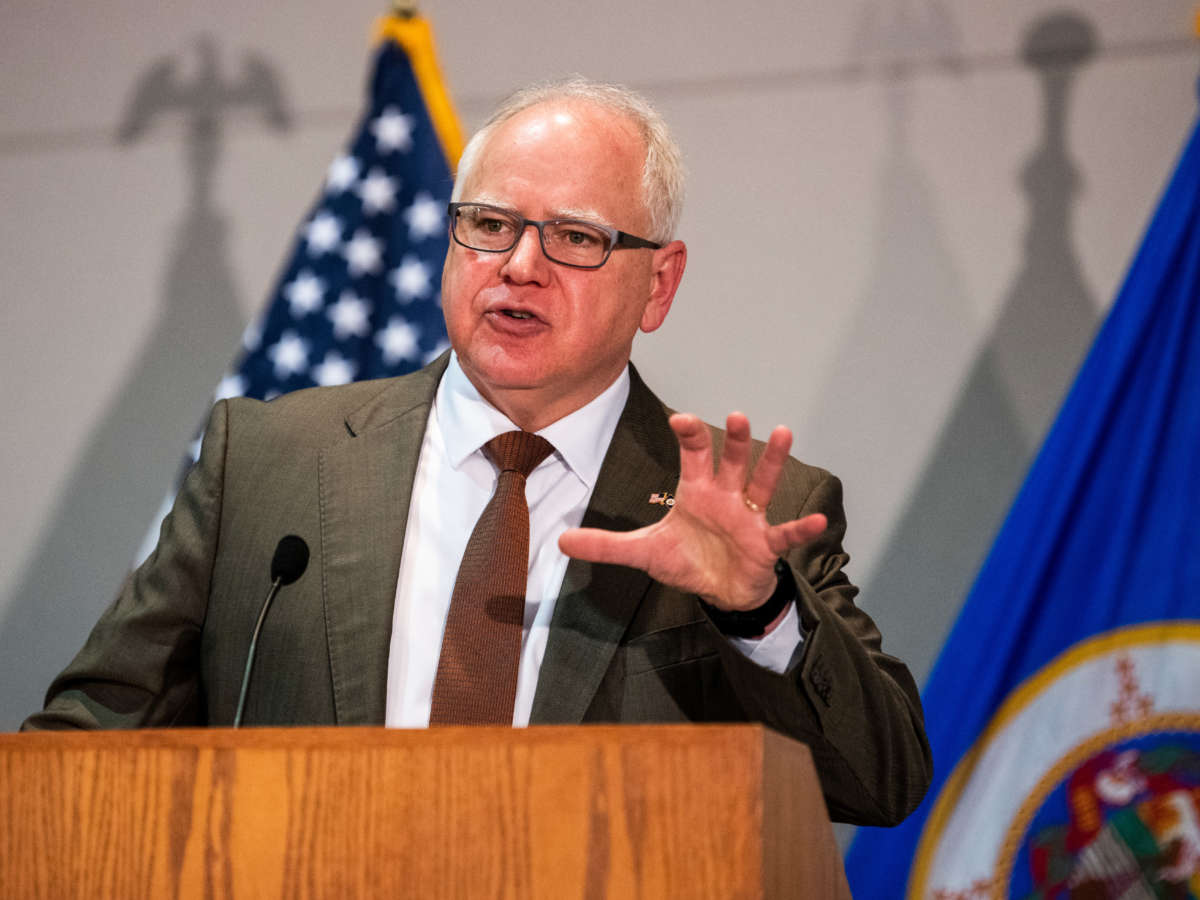In response to far right Supreme Court justices upending well-established federal abortion rights protections, Minnesota Gov. Tim Walz (D) took executive action over the weekend to strengthen current statewide abortion protections — including for those who may travel to Minnesota from another state seeking the procedure.
Walz issued Executive Order 22-16 the day after the Supreme Court issued its ruling in Dobbs v. Jackson Women’s Health Organization. Walz’s order instructs state government agencies to decline requests to extradite non-Minnesotans to their state of origin if they’re accused of committing acts related to their reproductive health that are allowed in Minnesota. The order also prohibits state agencies from assisting other states in sanctioning those who provide abortion services in Minnesota.
“No state agency may provide any information or expend or use time, money, facilities, property, equipment, personnel, or other resources in furtherance of any investigation or proceeding that seeks to impose civil or criminal liability or professional sanctions upon a person or entity,” the order says in part.
The state of Minnesota currently recognizes abortion rights beyond those enumerated in the Supreme Court’s 1973 Roe v. Wade decision. Due to a state Supreme Court ruling in 1995, abortion in Minnesota is considered a state constitutional right. Some restrictions are still in place, including a 24-hour waiting period, but it’s likely the state will become a “sanctuary” for abortion services in the Midwest, as every state that borders Minnesota has or is set to impose bans on the procedure.
In a tweet on Monday explaining his latest executive action, Walz — who is up for reelection in November — pointed out that the right to abortion in Minnesota could be in jeopardy after this year’s midterm races.
“My office has been and will continue to be a firewall against legislation that would reverse reproductive freedom,” Walz said. “This order demonstrates our commitment to ensuring access to abortion services and reproductive care remains safe, legal, and accessible.”
It’s possible that Walz’s order from this past weekend, as well as other abortion protections, will be undone following the midterm races. Currently, polling shows that Walz is in a statistical tie with his Republican challenger, Scott Jensen, who has vowed to ban abortion in the state if he unseats the incumbent governor this fall.
Efforts to pass a far right constitutional amendment in order to disrupt the state constitutional right to abortion may not succeed, even if Republicans win all seats of state government in the midterms — for an amendment to be enacted, it must pass both chambers of the state legislature and be voted on in a statewide election, and polling data demonstrates that most Minnesotans support keeping abortion rights intact.
Still, a Republican takeover of the state government could result in harsher restrictions on abortion services; though these restrictions may be technically in line with the state Supreme Court ruling, they could still make accessing the procedure more difficult for many residents, as well as for those traveling to Minnesota because their home states have outright bans on abortion.


